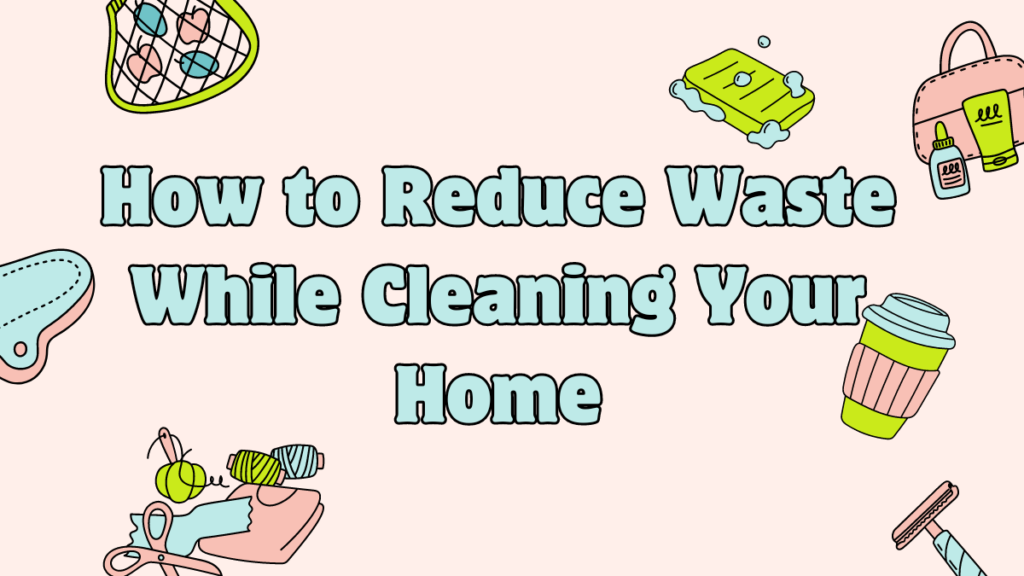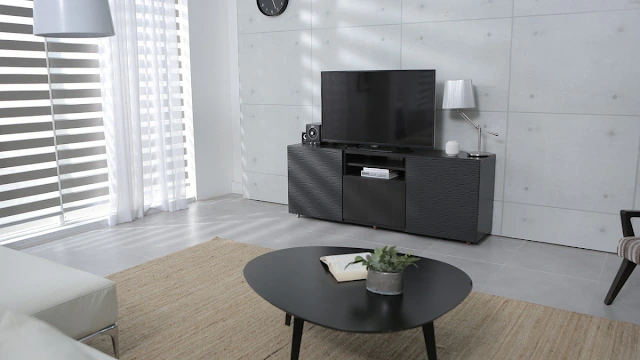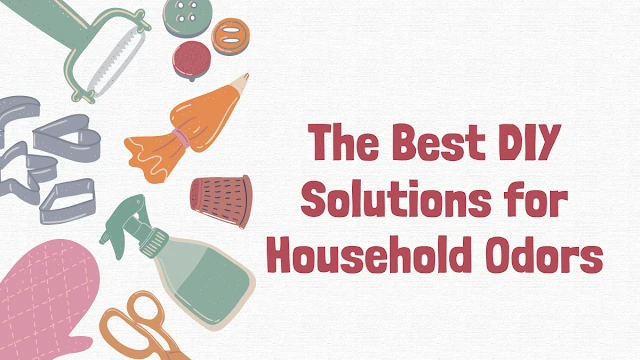
Cleaning your home is a necessary task. However, it can generate a lot of waste. From plastic packaging to disposable cleaning wipes, the waste can add up quickly. The good news is that you can reduce waste while still keeping your home clean. This article will guide you through various tips and methods to minimize waste during your cleaning routines.
1. Use Reusable Cleaning Cloths
One of the easiest ways to reduce waste is by using reusable cleaning cloths. Many people use paper towels or disposable wipes for cleaning. These products create a lot of waste. Instead, switch to microfiber cloths or old rags. You can wash and reuse these multiple times. Microfiber cloths are excellent for cleaning because they pick up dirt and dust effectively. You can use them for dusting, wiping surfaces, and even scrubbing.
2. Choose Eco-Friendly Cleaning Products
Many cleaning products come in plastic bottles and contain harsh chemicals. These chemicals can be harmful to the environment. To reduce waste, choose eco-friendly cleaning products. Look for products that come in recyclable packaging or even consider making your own cleaning solutions. Vinegar, baking soda, and lemon are natural ingredients that work well for cleaning. They are safe for the environment and reduce the need for multiple products.
3. Buy in Bulk
Purchasing cleaning products in bulk can significantly reduce waste. When you buy in bulk, you reduce the amount of packaging you use. This means fewer plastic bottles and containers end up in the trash. Look for concentrated versions of your favorite cleaning products. Concentrated products last longer, so you use less packaging over time. You can also refill your own containers, reducing the need for single-use packaging.
4. Avoid Single-Use Cleaning Tools
Single-use cleaning tools, like mop pads and dusters, create a lot of waste. Instead, invest in reusable tools. For example, use a mop with a washable head. You can easily wash the mop head after each use. The same goes for dusters. Choose a duster with a washable cover. This small change can make a big difference in the amount of waste you generate.
5. Repurpose Old Items
Before throwing something away, think about how you can repurpose it for cleaning. Old T-shirts, socks, or towels can be cut up and used as cleaning rags. Glass jars can be used to store homemade cleaning solutions. Repurposing items not only reduces waste but also saves you money.
6. Use Natural Air Fresheners
Commercial air fresheners often come in plastic bottles and contain chemicals. To reduce waste, opt for natural air fresheners. You can make your own using essential oils and water. Simply mix a few drops of your favourite essential oil with water in a spray bottle. Spray it around your home for a fresh scent. You can also use baking soda to absorb odours. Place an open box of baking soda in areas where you want to eliminate smells.
7. Compost Organic Waste
If you clean your kitchen, you probably generate organic waste like food scraps. Instead of throwing them in the trash, consider composting. Composting is a great way to reduce waste and create nutrient-rich soil for your garden. You can compost fruit and vegetable scraps, coffee grounds, and even some paper products. Many cities offer composting programs, or you can start your own compost bin at home.
8. Recycle Properly
Recycling is an essential part of reducing waste. However, it’s important to recycle properly. Make sure you know what materials your local recycling center accepts. Clean out containers before recycling them. This prevents contamination, which can lead to the entire batch being sent to the landfill. If you’re unsure about whether an item is recyclable, check with your local recycling center.
9. Choose Concentrated Cleaning Products
Concentrated cleaning products are a great way to reduce waste. They use less packaging and often last longer than regular products. Many concentrated products come in small bottles, so you can store more of them in less space. You can also control the strength of the solution by adding more or less water. This flexibility means you use only what you need, reducing waste even further.
10. Support Brands with Sustainable Practices
Many brands are now focusing on sustainability. Support these brands by purchasing their products. Look for brands that use recycled materials in their packaging or offer refillable options. Some companies also participate in take-back programs, where you can return empty containers for recycling. By supporting these brands, you encourage more companies to adopt sustainable practices.
11. Reduce Water Waste
Water is a precious resource, and it’s important to use it wisely when cleaning. Try to use only as much water as you need. For example, when mopping floors, fill the bucket with just enough water to get the job done. Avoid running the tap continuously when washing dishes or cleaning surfaces. You can also use a spray bottle to apply water or cleaning solution, which helps control the amount you use.
12. Make Your Own Cleaning Supplies
Making your own cleaning supplies is an excellent way to reduce waste. It allows you to reuse containers and avoid plastic packaging. Common household items like vinegar, baking soda, and lemon can be used to create effective cleaning solutions. For example, mix equal parts vinegar and water for a multipurpose cleaner. Baking soda is great for scrubbing tough stains. Lemon juice can be used to remove odors and add a fresh scent.
13. Choose Biodegradable Products
When purchasing cleaning products, look for those that are biodegradable. Biodegradable products break down naturally, reducing their impact on the environment. They are usually made from natural ingredients and are safer for both you and the planet. Biodegradable sponges, scrubbers, and cloths are great options for reducing waste in your cleaning routine.
14. Dispose of Hazardous Waste Properly
Some cleaning products contain hazardous materials that can be harmful if not disposed of properly. Items like batteries, fluorescent bulbs, and certain chemicals should not be thrown in the trash. Instead, take them to a hazardous waste disposal site. Many communities offer drop-off locations or special collection events for hazardous waste. Proper disposal ensures that these materials do not harm the environment.
15. Educate Yourself and Others
Reducing waste while cleaning is an ongoing process. Stay informed about new methods and products that can help you reduce waste. Share what you learn with others. Educating friends and family can have a positive ripple effect. The more people adopt waste-reducing habits, the greater the impact on the environment.
FAQs: Reduce Waste While Cleaning Your Home
Q: Can I use old clothes as cleaning rags?
Yes, old clothes, especially cotton ones, make excellent cleaning rags. They are soft, absorbent, and can be reused many times.
Q: Are homemade cleaning products effective?
Yes, homemade cleaning products can be very effective. Ingredients like vinegar, baking soda, and lemon are powerful cleaners that can tackle many household cleaning tasks.
Q: What is the benefit of using concentrated cleaning products?
Concentrated cleaning products use less packaging and last longer. They also allow you to control the strength of the solution, reducing waste.
Q: How can I compost at home?
You can start composting by setting up a compost bin in your backyard or using a kitchen compost container. Add organic waste like fruit peels, vegetable scraps, and coffee grounds. Turn the compost regularly to help it break down.
Q: What are biodegradable cleaning products?
Biodegradable cleaning products are made from natural ingredients that break down easily in the environment. They are safer for the planet and reduce waste. Reducing waste while cleaning your home is not only good for the environment but also for your wallet. By making small changes, you can significantly cut down on the waste you produce. Whether it’s using reusable cloths, choosing eco-friendly products, or making your own cleaning solutions, every little bit helps. Start today, and you’ll be on your way to a cleaner, greener home.
Read More
https://cleaningview.ca/eco-friendly-solutions-for-a-cleaner-healthier-home/
Important: The information provided here in the post is for general informational purposes only. It should not be taken as professional or any other type of advice. Always seek the advice of a qualified professional before implementing this information on your own. Thank you!
Add CleaningView To Your Google News Feed



